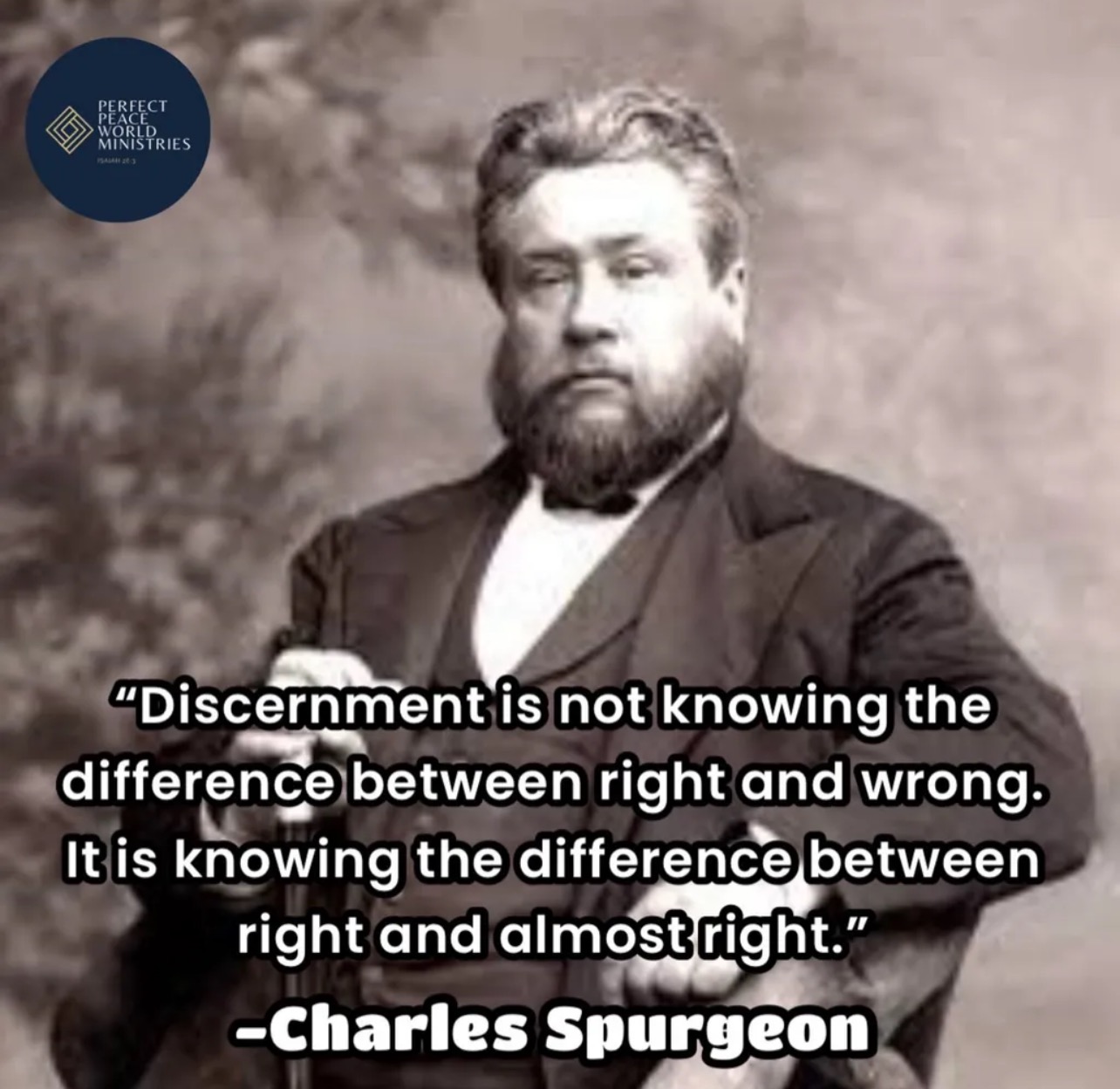
“But solid food is for the mature, for those who have their powers of discernment trained by constant practice to distinguish good from evil.”
— Hebrews 5:14 (ESV)
Discernment is one of the most critical yet often neglected virtues in the Christian life. It is the God-given ability to distinguish not just the obvious choices between right and wrong, but the subtle differences between what is almost right and what is truly biblical—not between black and white, but between light gray and the bright white of truth.
Biblical discernment is the Spirit-empowered ability to recognize truth and error, even when error comes cloaked in “Christianese”—familiar phrases, emotional appeals, or half-truths that sound good but are not rooted in Scripture.
“Discernment is not knowing the difference between right and wrong. It is knowing the difference between right and almost right.”
— Charles Spurgeon
False teachers rarely come waving red flags. Instead, they come as wolves in sheep’s clothing (Matthew 7:15), subtly twisting Scripture (Genesis 3:1), using impressive words and emotional appeal without sound doctrine (Romans 16:18).
We live in an age where false teachers are abundant—and often popular. Their teachings are attractive: they use Scripture selectively, emphasize personal fulfillment, and avoid offending listeners. They shy away from hard truths like the heinous nature of sin, the call to deny self, or God’s wrath and judgment.
They tickle ears with what people want to hear, allowing them to feel comfortable remaining in sin. Their message lacks the cross. It lacks repentance. It lacks Christ’s Lordship and the call to holiness.
Without discernment, we become vulnerable to:
“…those who have their powers of discernment trained by constant practice…”
— Hebrews 5:14
Discernment is not just a gift—it’s a muscle. It grows through use. And it is nearly impossible to maintain without faithfully practicing our spiritual disciplines. Only when we know and understand what is true can we clearly identify what is false.
Grow your discernment through: